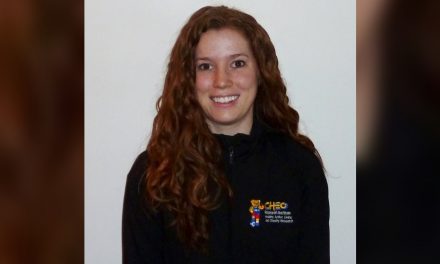HALO Ph.D. candidate Marisa Murray is lead author on a paper, “Excessive Time on Social Networking Sites and Disordered Eating Behaviors Among Undergraduate Students: Appearance and Weight Esteem as Mediating Pathways,” that was recently published in Cyberpsychology, Behavior, and Social Networking. Citation details and a summary of the paper are below.
Murray M, Maras D, Goldfield GS. Excessive Time on Social Networking Sites and Disordered Eating Behaviors Among Undergraduate Students: Appearance and Weight Esteem as Mediating Pathways. Cyberpsychol Behav Soc Netw. 2016 Dec;19(12):709-715.




